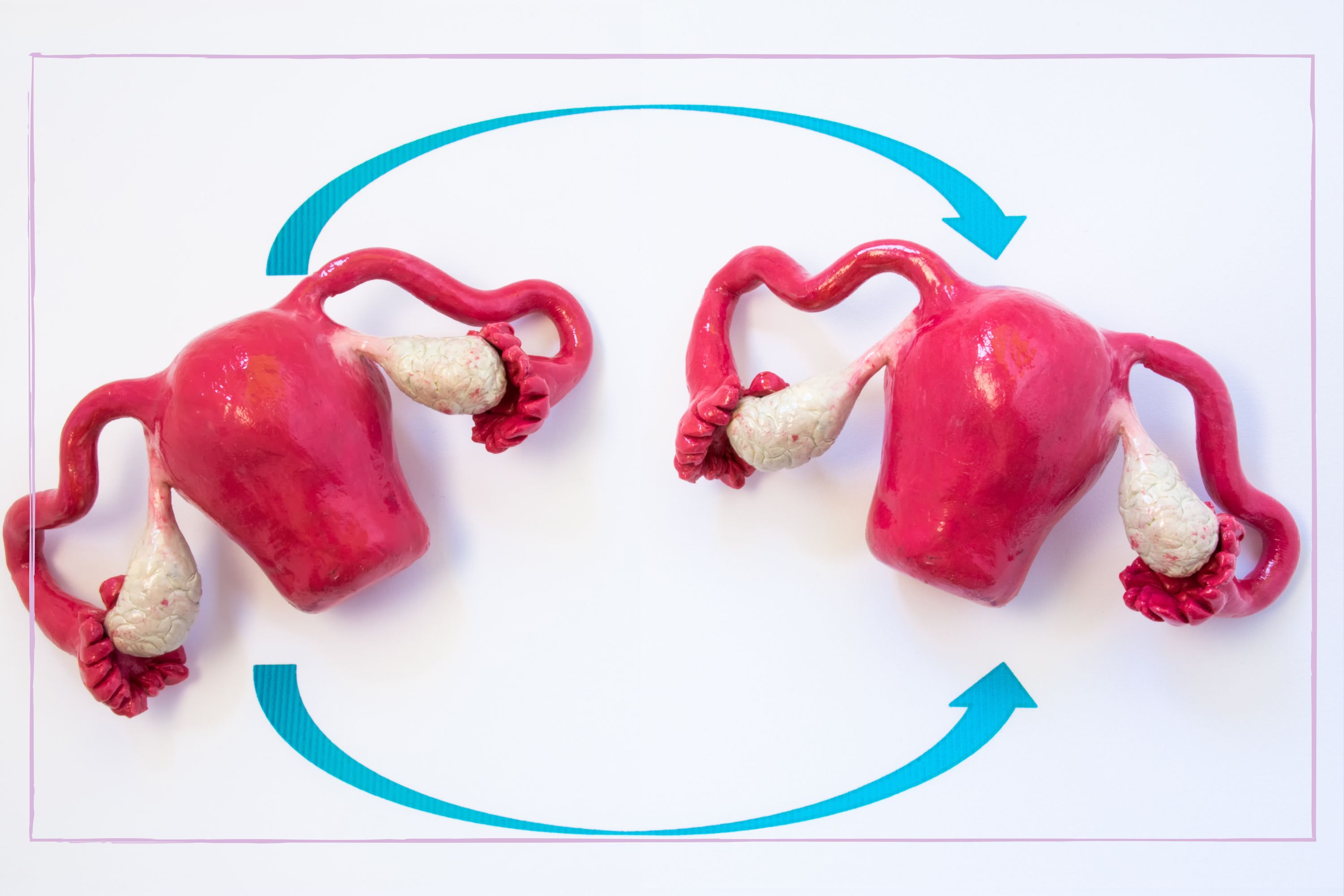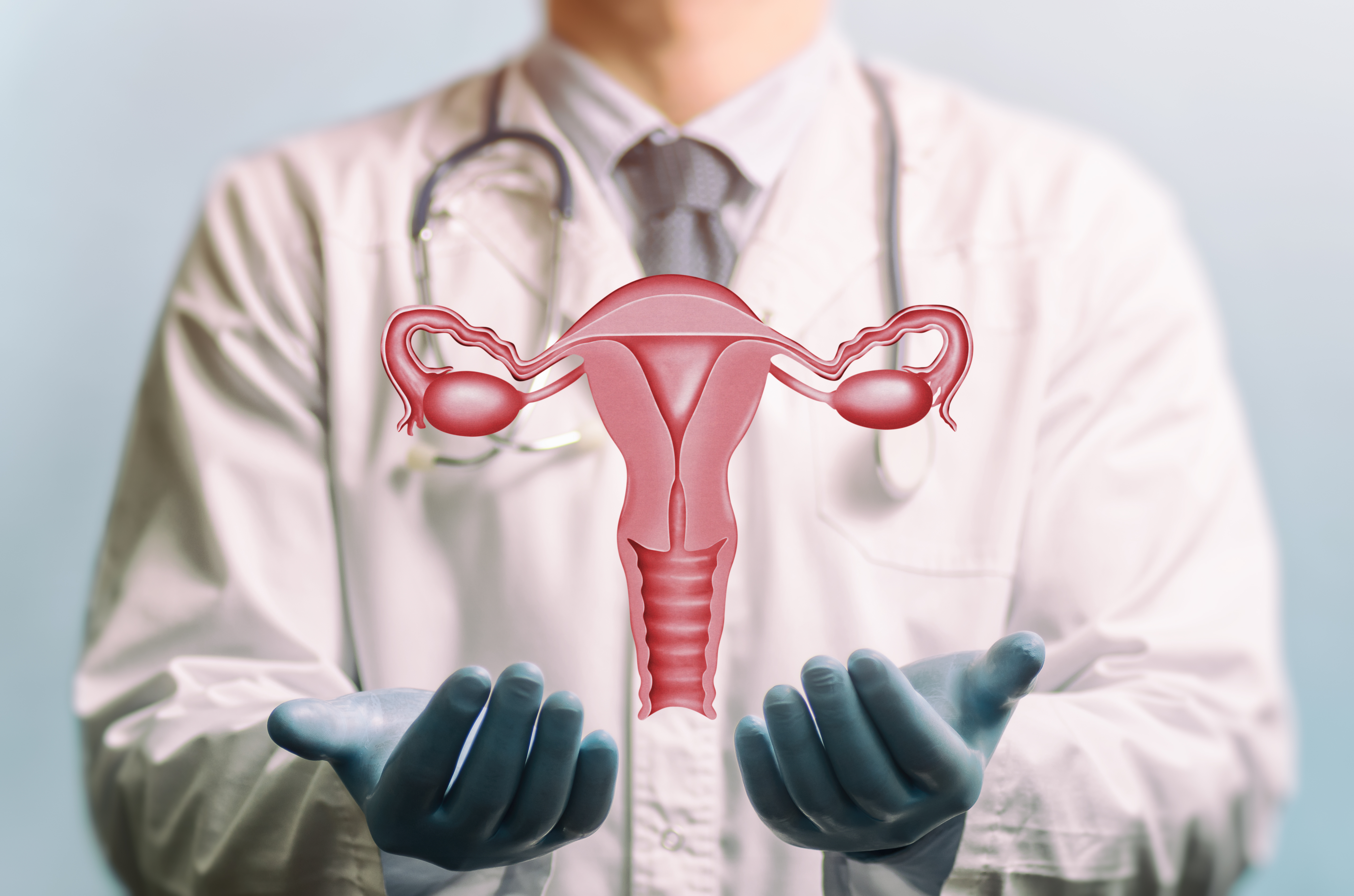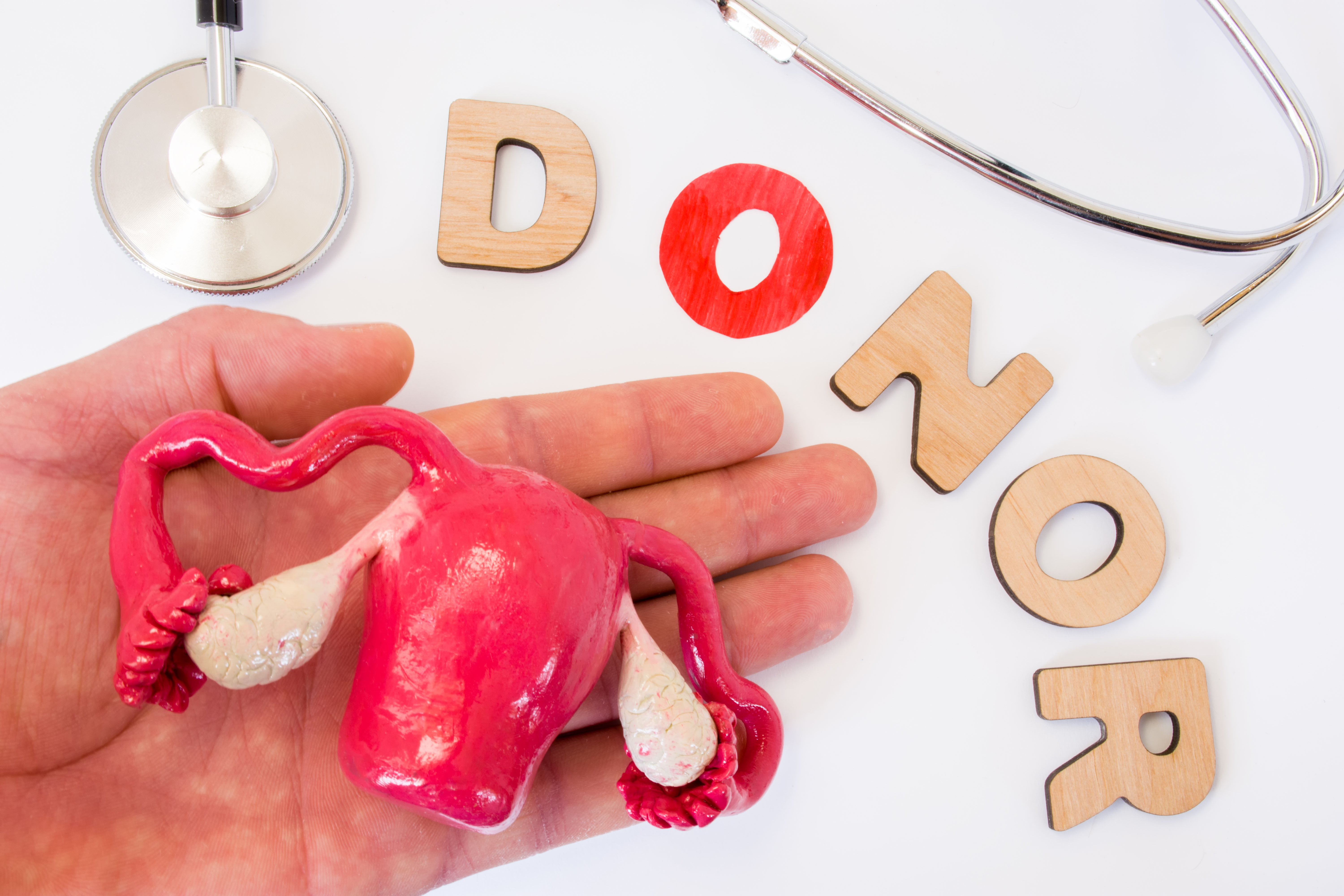Womb transplant UK: Will womb transplants be possible soon?
As news that the first woman in the UK has had a successful womb transplant, we look at all we know so far


Surgeons made history when they carried out the UK's first womb transplant and the move has prompted the question will womb transplants be possible soon?
Getting pregnant can be tricky at the best of times and various fertility factors can mean some women struggle to conceive, wonder why they can't get pregnant? But while IVF has given a ray of hope to those wanting to start a family, there's a new method on the horizon and it's just had its first UK success story.
A 34-year-old woman was gifted a womb by her 40-year-old sister after she was born with a rare condition known as Type 1 Mayer-Rokitansky-Küster-Hauser syndrome - which affects around one in every 5,000 women - a condition where a woman is born with an absent or underdeveloped uterus but functioning ovaries.
Surgeons in Oxford have successfully carried out the transplant which took place in February this year, as news broke this week that both women, who wish to remain anonymous, are reported to be recovering well from surgery.
The younger sister is planning to undergo IVF this autumn using embryos that she and her husband have in storage.
The trailblazing procedure was carried out by a team of around 20 medics, lasted about 17 hours, and took place at adjoining operating theatres at the Churchill hospital back in February.
As this breakthrough hits headlines, we look at what it could mean for others...
GoodtoKnow Newsletter
Parenting advice, hot topics, best buys and family finance tips delivered straight to your inbox.
Will womb transplants be possible soon?
Yes, womb transplants could become a mainstream procedure in the near future after an estimated 90 transplants were thought to have been carried out around the world as of the end of 2021. These transplants have resulted in the birth of around 50 children. The first child to be born following a uterus transplant took place in Sweden in 2014.
While the transplantation is still considered a fairly experimental procedure, they are already enabling some women who suffer from uterine factor infertility - which has long been seen as an irreversible condition - to successfully give birth.
It's hoped that in the near future that it could help some transgender women get pregnant too.
Mats Brännström, professor of obstetrics and gynaecology and chief physician at the University of Gothenburg in Sweden, helped deliver that first-ever baby born as a result of a uterine transplant. And since then, he's been inundated with people who were assigned male at birth, asking about the procedure.
In an interview with Euronews Next, he warned, "I get emails from people all over the world. But there is the risk that we will rush into this because we have patients who are very interested.
"I say to them we haven't done enough research, but I think it will be possible in the future. It may take five or 10 years, I would say."
There is also the growing possibility of living donors, who are not family members, being able to donate their wombs in the future.
Transplant surgeon Isabel Quiroga said, "We have women contacting the charity… such as young women who say ‘I don’t want to have children but I would love to help others have a child’ or’ I’ve already had my children I would love other women to have that experience’.
“So yes, there will definitely be a time in which that is a main source of donors.”
It's predicted that a maximum of 20-30 people per year could benefit from womb transplants in the future.

Who is eligible for a womb transplant?
Any woman who is diagnosed with absolute uterine/ womb factor infertility between the ages of 24 and 40 (or 42 if her eggs were frozen before the age of 38) is eligible for a womb transplant. They must also qualify for NHS care and live in the United Kingdom, according to Womb Transplant UK.
The charity paid the NHS costs of the first UK womb transplant, estimated to be around £25k.
There are currently thought to be more than 15,000 women in the UK who have absolute uterine factor infertility.

When was the first successful womb transplant?
The first successful womb transplant was carried out on a trans-gender woman in 1931 and while the transplant was originally successful, the uterus only lasted 99 days, and the recipient died from organ rejection three months after the procedure. A 26-year-old woman in Saudi Arabia back in 2000 also had a successful womb transplant but the donor womb only survived 99 days due to problems with its blood supply. Meanwhile, in 2014, a woman in Sweden became the first to have a baby as a result of a successful womb transplant. The lady had received a donated womb from a friend in her 60s.
Since then around 100 procedures have taken place around the world including the US, Sweden, Turkey, India, Brazil, China, Czech Republic, Germany and France. Approximately 50 babies have been born as a result of the pioneering procedure.

Has there ever been a successful womb transplant?
Yes, there have been around 100 successful womb transplants worldwide and following the UK's first successful womb transplant, Professor Richard Smith, who led the organ retrieval team, said: “It was incredible. I think it was probably the most stressful week in my surgical career but also unbelievably positive.
“The donor and recipient are over the moon, just over the moon."
In order to prevent tissue rejection, the young sister is taking immunosuppressive drugs, but as these carry long-term health risks, the transplanted uterus must be removed after a maximum of two pregnancies.
The transplant surgeon Isabel Quiroga added, "She was absolutely over the moon, very happy and is hoping that she can go on to have not one but two babies.
“Her womb is functioning perfectly and we are monitoring her progress very closely.”
A post shared by Sky News (@skynews)
A photo posted by on
Who was the first uterus transplant in 1931
The first uterus transplant took place in 1931 and it was carried out in Germany to a transgender woman named Lili Elbe. While the transplant was originally successful, the uterus only lasted 99 days and Lili died from organ rejection complications three months after the operation. It was portrayed in the 2015 film The Danish Girl.
There's more information available on conception and fertility including how to increase sperm count or the best fertility foods.

Selina is a Senior Family Writer for GoodtoKnow and has more than 16 years years of experience. She specialises in royal family news, including the latest activities of Prince George, Charlotte, Louis, Archie and Lilibet. She also covers the latest government, health and charity advice for families. Selina graduated from the University of Sheffield in 2006 with a degree in Journalism, and gained her NCTJ and NCE qualifications. During her career, she’s also written for Woman, Woman's Own, Woman&Home, and Woman's Weekly as well as Heat magazine, Bang Showbiz - and the Scunthorpe Telegraph. When she's not covering family news, you can find her exploring new countryside walking routes, catching up with friends over good food, or making memories (including award-winning scarecrows!)